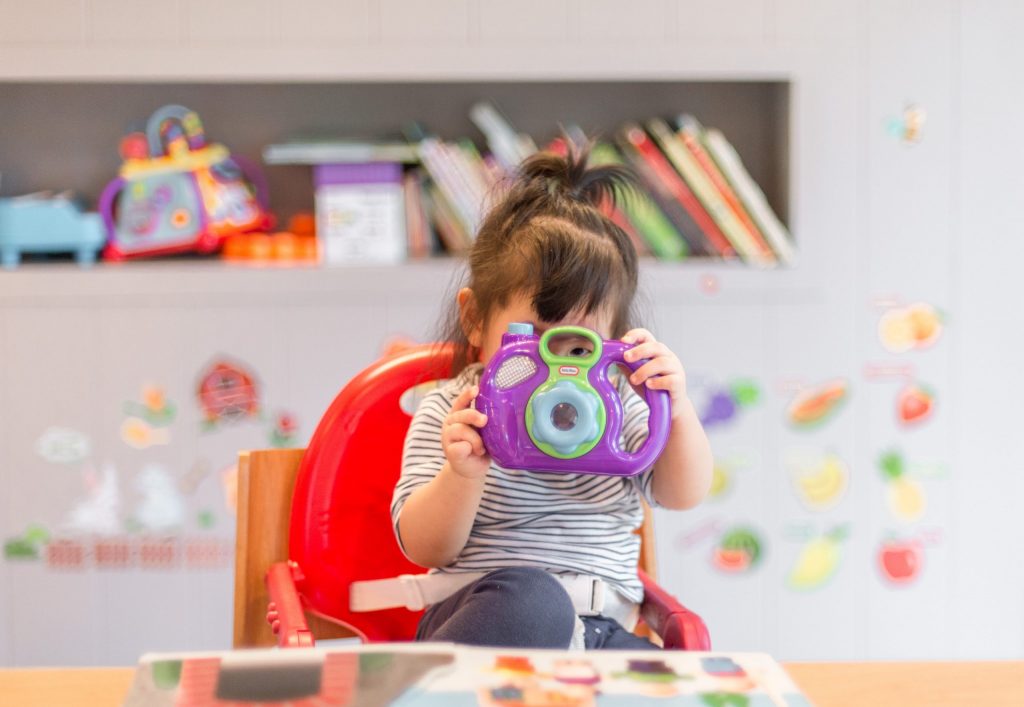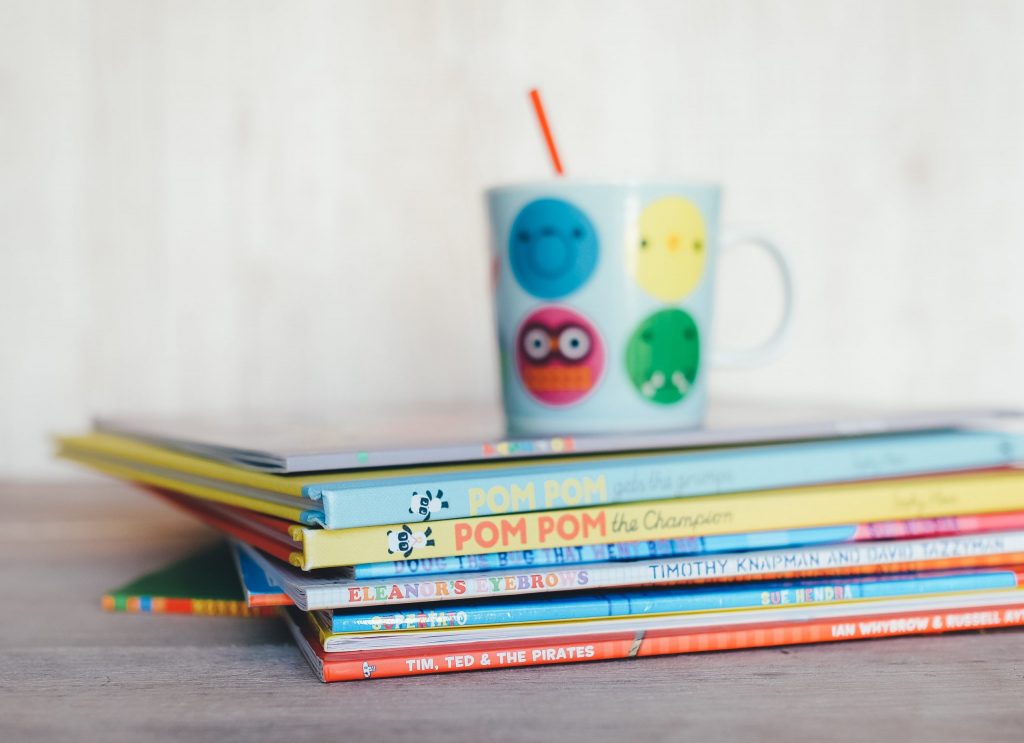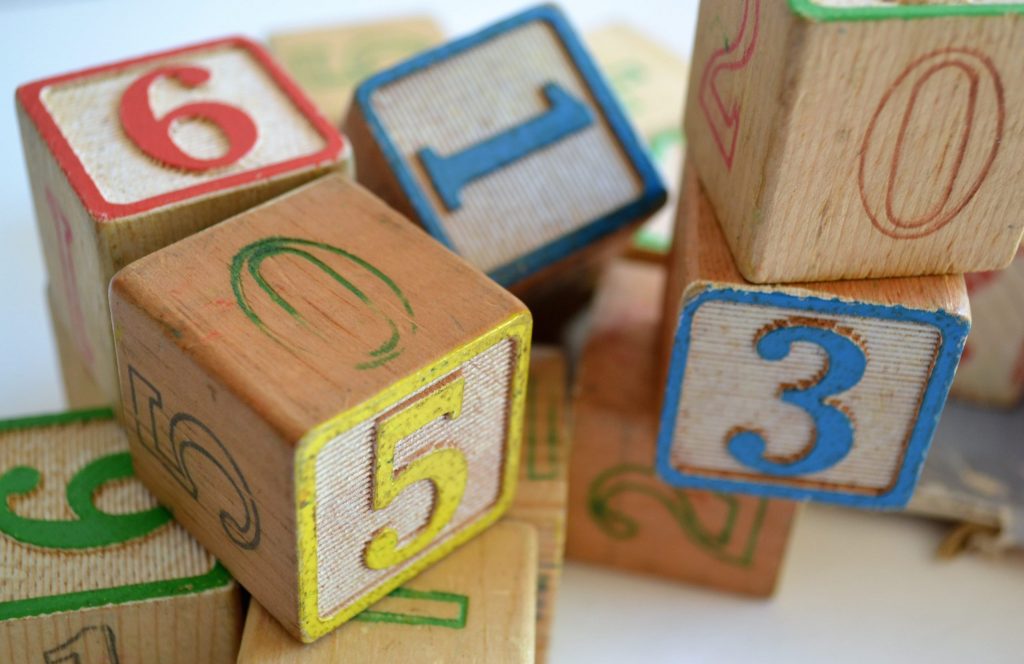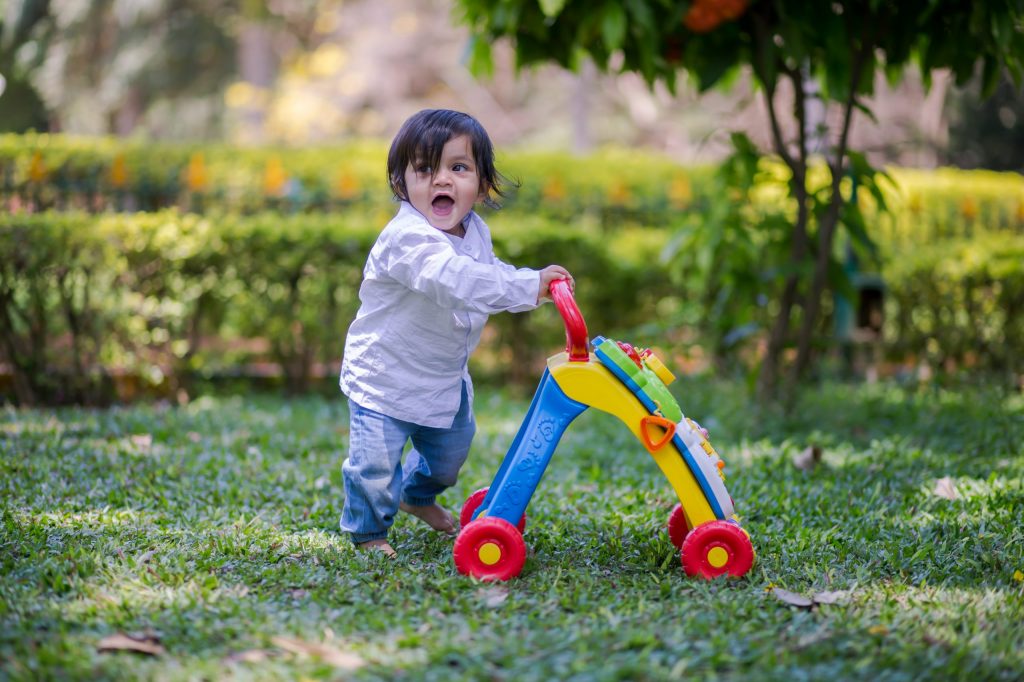PLAY GROUP
“Play Group Online Class”
Age 0 to 2.5 years
Toddlers are learning all the time. They may not be able to articulate themselves like older children but they are like sponges, taking in everything with their senses. (Literally! That’s why they put things into their mouths to feel and experience the object). Our interactive classes aim to involve them while doing activities and using materials at large to get active learning in motion.

“Area of Focus”
- Creative Skills
- Early Literacy
- Early Math and Science
- Play
- Social Skills
- Learning Environment

Creative Skills
Creative skill is all about empowering oneself to see concepts in a different light, leading to innovative thinking and problem solving. When provided with different and open ended materials toddlers learn to see and use objects differently. They get creative while exploring materials and trying to use it in more than one ways. Often as adults we get fixed to the idea of purpose behind an object. This restricts creativity and so we should provide enough materials and allow toddlers to explore freely to support them in developing creative skills.

EarlyLiteracy
Literacy skills for toddlers begin with pre writing and reading skills. It consists more of practical experiences of reading and writing. When they observe and learn to explore things around them and in their environment they begin to use fine motor skills and understand the surroundings. Exploring prints, scribbling in writing areas using jumbo crayons or chalks, awareness of print, letter knowledge etc. This enables them with writing and reading prerequisites and they eventually become ready for actual reading/writing practice.

Early Math and Science
Science and math is integrated with our environment and is present all around us. Children begin to explore the wonders of science and learn to figure out concepts of maths around them. Like noticing patterns around them, exploring natural processes of life and wondering about why’s for what they see on daily basis. Structured approach allows them to develop more thinking abilities to answer the why’s and understand processes better.

Play
Play is at the heart of how young children learn. Through play, children demonstrate what they are learning, what they are interested in, and what they are concerned about. They test out and practice actions to which they’ve been
exposed. When we observe children at play, we begin to learn more about what they understand and can identify the skills that need more practice. This informs our efforts to guide them to the next level. Physical development is as important at this state as is mental growth.

Learning Environment
Learning environment plays a very important role in overall growth and development of child. Playful learning occurs beyond the school or child-care setting. It occurs everywhere. It occurs when parents are running errands, when children play with others in a park, or in after-school settings. This type of learning is often described as informal learning. Taking advantage of these opportunities helps children make connections to the larger world. Children are inspired to learn because of the desire to know how to do something or engage with others. The reward is relevant and enjoyable since it is based on the children’s
realtime experiences. Children spend most of their time in informal versus in more formal settings.
FAQ
Homeschooling is an alternative education system, it is a progressive movement around the country and the world, in which parents educate their children at home instead of sending them to a traditional government or private school or if specific component of education is not been covered in school curriculum.
Families choose to homeschool for a variety of reasons, including dissatisfaction with the educational options available, different religious or educational philosophies, special needs learner, inculcating special interests of child, and the belief that children are not progressing within the traditional school structure.
Home schooling has gained wider attention and more-mainstream acceptance as the numbers of students learning at home doubled in the past decade and now increased exponentially.
myHomeschooling is the team of Researchers and evolvers in education system. To support you best, it is important for us to know about you, child’s interest, family set up and need to homeschool.
In order to process these details, our experts are available for 1:1 connects with parents and based on same, curriculum details will be shared with you.
It is student-paced strategy, considering real time learning. After all one size does not fit everyone.
To approach us for 1:1 connects you can send us your query through Contact US.
During our 1:1 Connect we execute diagnostic test that helps us and parents both to know:
-What type of learner child is as per the theory of Multiple Intelligence?
-What level child has already achieved and where we should target next with scaffolding.
To homeschool child, it is important to know what is the child’s style of learning and accordingly learning should be projected. In a way it also satisfies the purpose of home schooling. For example a kinaesthetic learner may not be able to perform while asked to be seated in one place and complete task.
Multiple Intelligence with 21 century skills is the best combination to prepare young children for required skills that are “Must to Have†for now and upcoming work profiles.
 Children need a large amount of diverse activities to hold their attention and prevent boredom. By shifting from computer-based lessons to discussion, or from paper and pencil exercises to art projects, homeschooled children are more likely to stay engaged and benefit from different teaching methods.
Activity variety and movement are also contributing factors to a child’s learning styles. Make sure a child isn’t forced to sit through a particular activity for prolonged periods of time. Short successful bursts of educational instruction can keep children motivated and attentive throughout the day.
If working with more than one child, consider each student’s learning style and method preference. Many families find that what fits one child, may not fit another, or that what worked well one semester, may feel stale and stop working the next time around. It’s this quest to find the best curriculum for each student’s learning style that can cause parent and student frustration, not to mention is emotionally exhausting to create that perfect custom curriculum.
21st Century skills are 12 abilities that today’s learners need to succeed in their careers during the Information Age.
The twelve 21st Century skills are:Â
- Critical thinking
- Creativity
- Collaboration
- Communication
- Information literacy
- Media literacy
- Technology literacy
- Flexibility
- Leadership
- Initiative
- Productivity
- Social skills
When you are homeschooling a child- you are a Mentors“ a teacher, Sports Coach, Counsellor and sometimes a friend too.
MyHomeschooling encourages on child specific learning. Any point in time if you feel you can approach government or private CBSE schools around you who supports NIOS. NIOS is National Institute of Open Schooling which is a national board that administers examinations for Secondary and Senior Secondary examinations similar to the CBSE and the CISCE. It also offers vocational courses after the high school.
Learners can enrol self with NIOS is a national board that administers examinations for Secondary and Senior Secondary examinations similar to the CBSE and the CISCE. It also offers vocational courses after the high school.
Minimum age to enroll is 15 years, it has no upper limit.
Homeschoolers in most of the states and regions have access to an array of resources and social networks. In addition to forming co-ops, in which families group together to have classes, there are social events such as lectures, field trips, art classes, music instruction, sports, and play dates. MyHomeschooling helps in clubbing families of specific area to provide social circle to child.
A successful homeschool curriculum can be made up of the following approaches:
- Reviewing a set of subjects or courses to study to improve a skill set
- Adhering to a guided program or roadmap of studies to meet learning objectives
- Tangible, creative or technological materials to enhance the learning experience
- An engaging learning environment that includes external activities communities or group-based learning based on style of learner.
- Communication lead by parental guidance or interpersonal relationships with siblings or other homeschoolers
- Individual learner experiences as a result of homeschooling
Yes. Any child who needs self-paced learning (slow or fast), specific skill development (specific sport, speech, learning challenges) is a perfect candidate for homeschool.
MyHomeSchooling team provides educational kit for special needs learning development. This kit caters support for their sensorial needs, establishing various daily routines and CURRICULUM in terms of individual components like Science and Technology, Language Development, Maths skills, Music and Movement, individual guidance if required from special education certified trainers.
You can reach out to us for more details. Contact us.
s mentioned in above FAQs, we request you to please connect with us so that we can understand childs level, learning style and family support.
It helps in building up appropriate curriculum for child. Kindly Contact Us
It is a fair possibility to face hiccups or challenges while implementing specific program, we request you to connect with request and us for experts time. MyHomeschooling team will get back to you in 48 hours.
Homeschooling parents across the country are using technology enthusiastically to aid with teaching approaches on the computer. One resource type, an online learning system, can combine interactive lessons, multimedia reinforcement activities, printable worksheets and learning games.
Online educational software should be flexible and easy to use. And students should have the ability to work as much as they want every day, which aligns perfectly for homeschooling experience.
Early science, technology and math exposure to children helps in developing logical minds. STEM is hand on experience of most of our regular concepts that are covered in our textbooks.
To inculcate these basic science skills, we encourage parents to introduce STEM early in age and provides a monthly kit with STEM material which can be opted as part of stand alone CURRICULUM. Parents would need to enrol child based on his age and interest. Kindly connect to us through Contact Us.
A Key features of an online homeschool curriculum:
- Safe, secure, ad free, online learning environment
- Interactive software exercises for reinforcement and discovery learning of new materials
- Multimedia lessons that feel more like video games offering a fun way to present difficult concepts
- Short lessons that teach concepts which can be evaluated later with online quizzes and tests
- Automated record keeping or a portfolio to keep track of student usage and completion
- Homeschool portfolio reporting that turn into student transcripts
- Online lessons and quizzes that align with your homeschool curriculum goals
There is no single best homeschool curriculum that meets all of the educational needs of preschool through twelfth grade learners. But new approaches to teaching and learning can be adapted within your own environment while online educational tools can help you build interesting, diverse days.

Social Skills
Peer and family interactions are another important context for learning. When engaged in peer play children observe others and will imitate or build on what they observe. At toddler stage children learn by imitating and so all interactions – formal, family and other adult child interaction supports them to develop more social and emotional skills. Children gain social and emotional skills when they make efforts to create games and coordinate activities with each other. For example, children learn self-regulation when they develop and play rule-based games and they learn perspective when they negotiate the themes within dramatic play activities with others.